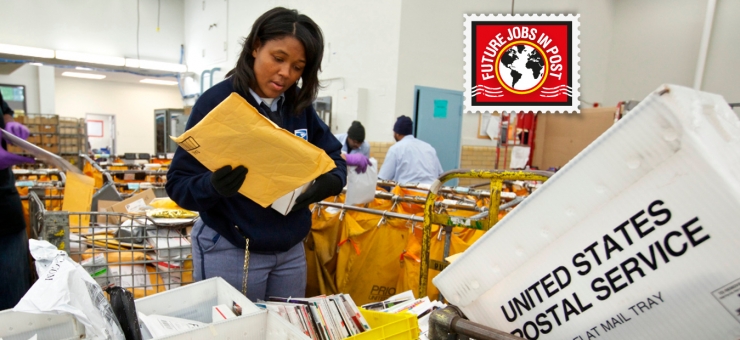Obama can improve equality by letting USPS offer more financial services

A White Paper on "Providing Non-Bank Financial Services for the Underserved" has just been published by the Office of Inspector General at the USPS (United States Postal Service).
It takes a strong stance in favour of the U.S. Post being authorized to extend its range of basic financial services to serve the quarter of all U.S. households, or some 68 million adults, that are currently suffering from lack of access or of affordability of financial services.
“This is a win-win that we can achieve quickly and at little cost,” Ranking Member Elijah Cummings of the Committee on Oversight and Government Reform said. “By authorizing the Postal Service to offer these financial services, millions of Americans could save billions of dollars on exorbitant fees and interest, while the Postal Service could obtain new revenue to improve its financial footing.” see http://democrats.oversight.house.gov/press-releases/cummings-urges-passa....
The White Paper shows that on top of providing more affordable than present money lenders' basic financial services for the underserved this would make good use of the USPS prime branch locations and give a new opportunity for the Postal service to earn substantial additional revenue, amounting to $8.9 billion per year if even 10% of present spending by the underserved on interest and fees went to the Postal Service. This comes as banks are closing branches all over the country and especially in lower-income areas while loans known as "payday loans" can carry a 391% annual interest rate when renewed washing these unbanked borrowers away in debt.
The Postal Service could bank upon it reputation of trust to offer these additional financial services, in partnering with banks on products and expertise, acting as a largely complementery service. There would be no need fo new legislation in launching new services close to their present offering which includes national and international money orders or even postal savings deposits that were offered between 1911 and 1967. These new services could be payments (e-commerce and e-government such as tax payments and refunds), postal savings and small loan facilities. Check cashing, identity authentification, mobile financial services and education on financial leteracy are other possible Financial Services the USPS could offer.
On January 29, 2014, Rep. Elijah E. Cummings, Ranking Member of the Committee on Oversight and Government Reform, urged the House of Representatives to consider his bill, the Innovate to Deliver Act, to authorize the United States Postal Service to expand the services it offers, including check-cashing, public internet access, and warehousing services. The bill also would establish the position of Chief Innovation Officer to manage the development and implementation of these innovative services. ~~see http://democrats.oversight.house.gov/press-releases/cummings-urges-passa....
A New Republic article by David Dayen, urges President Obama to act : "Maybe it’s time for President Obama to step in. He’s been looking for something to show he can help improve the lives of ordinary Americans, regardless of Congress’ inaction. Here’s a perfect opening on an issue of equal access, of affordability, of saving an American institution. Sure, the banks will squawk: the chief counsel of the American Bankers Association has already pronounced himself “deeply concerned”—but as the IG report shows, they have no interest in serving this community. So surely that won’t stop the President from urging the USPS to take advantage of this lucrative and worthwhile option. Unless he values payday lenders and greedy middlemen more than the financial security of the Postal Service and millions of poor Americans."
See : The Post Office Should Just Become a Bank How Obama can save USPS and ding check-cashing joints. http://www.newrepublic.com/article/116374/postal-service-banking-how-usp...
Attached is the Office of Inspector General USPS White paper "Providing Non-Bank Financial Services for the Underserved", January 27, 2014

